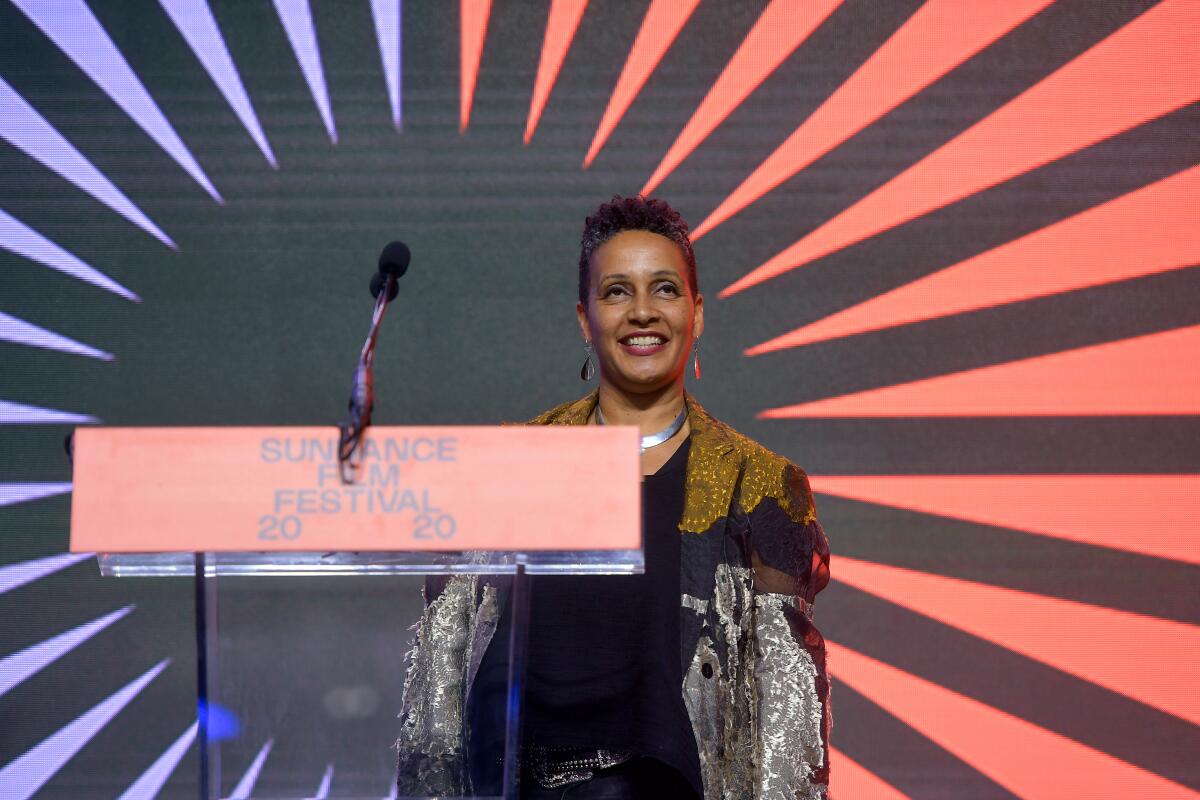Sundance Film Festival will require attendees to be fully vaccinated

- Share via
The 2022 Sundance Film Festival will require all participants attending in Utah to be fully vaccinated. In an announcement released on Tuesday, festival director Tabitha Jackson said, “We are providing this information now to ensure that all in-person participants feel comfortable attending, and can adjust their travel plans if needed.”
The announcement further reads, “As part of our commitment to this community, we will be requiring all participants attending the Festival, or Sundance-affiliated events, in person in Utah to be fully vaccinated ... We will share our full details and processes for health precautions closer to the Festival, including theater capacity along with information on mask-wearing. We will continue to assess other elements of health and safety protocols regularly and in accordance with best practices.”
Sundance 2022 is scheduled to run from Jan. 20 through 30. The 2021 edition of the festival took place virtually and with in-person events in 20 cities across the United States, resulting in viewership numbers reported to be more than 2.5 times larger than the usual in-person festival based in Park City, Utah.
In Tuesday’s announcement, Jackson also noted that the 2022 festival will be larger than the previous year but still with a smaller program than in pre-pandemic years, estimating that around 80 features are expected to play during the festival. Films will play both online and in-person, with screenings in Park City, Salt Lake City and at the Sundance Resort. Online premieres will follow in-person premieres.
The festival will also again have a series of satellite screenings at up to 10 arts organizations and regional cinemas around the country during the closing weekend.
In the statement, Jackson said, “Since 1985, artists and audiences have gathered at the Festival to affirm the transformative power of independent film and media. And for all of those years, the Festival took place in our home state of Utah… until 2021, when we came together not in a place but in a moment, from places all around the world.”
Jackson added, “In other words: It was Sundance, in a new form.”

Film festivals around the world have all responded to the COVID era in different ways. The recently concluded Cannes Film Festival required attendees from the U.S. to show a negative COVID test from within 48 hours, regardless of vaccination status. The upcoming Toronto International Film Festival will begin just after Canada is scheduled to reopen its borders to fully vaccinated travelers from all other countries.
The Venice Film Festival will recognize vaccination certificates from the U.S., and festival attendees will need to prove they are fully vaccinated, have recovered from a COVID infection or have a negative antigen test in order to enter screenings.
The Telluride Film Festival will also require attendees to provide proof of vaccination. The upcoming New York Film Festival has not yet announced its exact health and safety protocols and requirements.
In an interview with The Times last week, Jackson spoke about planning the 2022 festival after already putting on a COVID-era event in 2021.
“We’re ahead of where we were last year in terms of thinking and understanding, but then we’re still in a pandemic year, so we have to keep flexible,” said Jackson. “[As] it did last year, it gives us a sense of, ‘Well hey, why don’t we just try this?’ Aside from the seriousness of the public health situation, there is something creatively liberating about uncertainty.”
More to Read
Only good movies
Get the Indie Focus newsletter, Mark Olsen's weekly guide to the world of cinema.
You may occasionally receive promotional content from the Los Angeles Times.











